
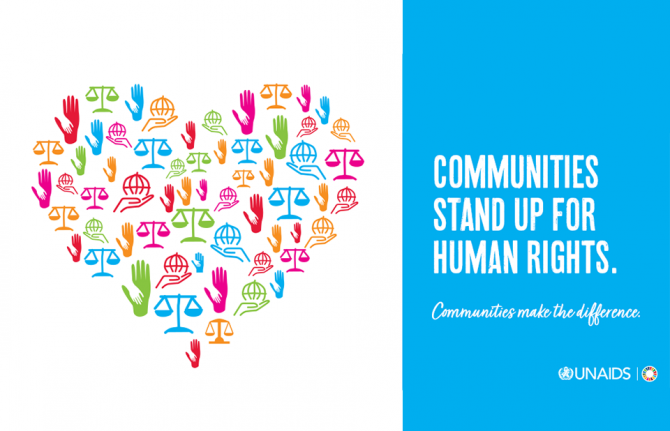
Press Statement
UNAIDS Executive Director's message on the occasion of Human Rights Day
10 December 2019 10 December 201910 December 2019
Human rights are key to ending AIDS and have been at the heart of every struggle and every success we have had since the beginning of the epidemic.
Without us demanding our human rights and the tireless call to ensure that human rights remain central to the AIDS response, we would not have more than 24 million people on treatment today and four in five people living with HIV would not know their HIV status. Vulnerable and marginalized populations and people living with HIV would not have access to stigma-free health care or the ability to hold governments to account.
Yet the AIDS response is not over, and barriers to human rights remain. HIV is still an epidemic of inequality, stigma, discrimination and violence. Where people’s rights are breached, they are at higher risk of infection and are less likely to take an HIV test or to be on treatment.
Key populations now account for 54% of new infections globally―75% of new infections outside of sub-Saharan Africa. Globally, in 2018, 6000 adolescent girls and young women became infected with HIV every week. Let me be clear, these communities are not being left behind―they are being pushed behind, by laws, policies and practices that are created, enacted and implemented.
Intersecting forms of discrimination and inequality push women in key populations to experience unique vulnerabilities and barriers. We know, for example, that women who use drugs are disproportionately incarcerated and are at higher risk of HIV than their male counterparts.
Sex workers, gay men and other men who have sex with men, transgender people and people who use drugs face harsh and unforgiving barriers in the form of criminal laws. These laws increase stigma and discrimination and stop people accessing harm reduction and HIV testing, treatment and prevention services. They prevent communities from coordinating and working together, they isolate and render communities invisible and they increase levels of violence.
These laws affect lives and the rights of people and communities to equality, health, privacy, family and even life itself.
But, in a stroke of the pen we could reverse this. Decriminalization of sex work could reduce between 33% and 46% of new HIV infections among sex workers and their partners over 10 years. New evidence in sub-Saharan Africa has shown that knowledge of HIV status among gay men and other men who have sex with men who were living with HIV was three times higher in countries with more supportive laws for lesbian, gay, bisexual, transgender and intersex people, and countries that decriminalize drug use and provide harm reduction see HIV infections plummet among people who use drugs.
This is no longer about a need for evidence―it’s about leadership, political courage and action.
The first obligation of a country for its human rights is “respect”―the obligation to respect, not breach, people’s human rights. By keeping such criminal laws in place, we are failing at the first hurdle.
The law should protect, not persecute, the most vulnerable and must support, not sabotage, public health and human rights efforts.
This Human Rights Day, I call on all of us to look at our own laws and create a justice system that protects, rather than breaches, the human rights of the people who are being left behind.
Winnie Byanyima
Executive Director of UNAIDS
Under-Secretary-General of the United Nations
UNAIDS
The Joint United Nations Programme on HIV/AIDS (UNAIDS) leads and inspires the world to achieve its shared vision of zero new HIV infections, zero discrimination and zero AIDS-related deaths. UNAIDS unites the efforts of 11 UN organizations—UNHCR, UNICEF, WFP, UNDP, UNFPA, UNODC, UN Women, ILO, UNESCO, WHO and the World Bank—and works closely with global and national partners towards ending the AIDS epidemic by 2030 as part of the Sustainable Development Goals. Learn more at unaids.org and connect with us on Facebook, Twitter, Instagram and YouTube.
Contact
UNAIDS GenevaAnne-Claire Guichard
tel. +41 22 791 2321
guicharda@unaids.org
UNAIDS Media
tel. +41 22 791 4237
communications@unaids.org
Press centre
Download the printable version (PDF)

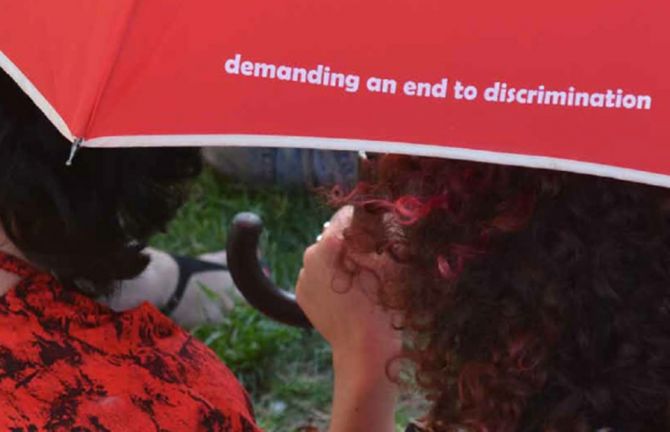
Press Statement
UNAIDS welcomes the decision by the Northern Territory of Australia to decriminalize sex work
02 December 2019 02 December 2019GENEVA, 2 December 2019—UNAIDS applauds the decision by the parliament of Australia’s Northern Territory to decriminalize sex work. The Sex Industry Bill 2019 enhances the safety of sex workers and their clients by applying public health legislation to operators of sex service businesses and by allowing sex workers to work together. The legislation explicitly prohibits the exploitation of sex workers, supports their access to justice and outlaws any involvement of children.
“I commend this decision by Australia’s Northern Territory, which upholds the human rights of sex workers and means that they can operate within existing laws and regulations, including laws relating to employment, occupational health and safety, workers’ rights and discrimination,” said the UNAIDS Executive Director, Winnie Byanyima. “The decriminalization of sex work reduces the risk of HIV transmission for both sex workers and their clients.”
Globally, sex workers are 21 times more likely to acquire HIV than the general adult population. A 2014 study published in the Lancet indicated that the decriminalization of sex work is the single intervention that would have the greatest impact on the course of the HIV epidemic over 10 years, with reductions in new HIV infections among sex workers and their clients estimated at between 33% and 46%.
“This is a huge achievement built on the advocacy of sex workers and their supporters over many years and the result of best practice collaboration between the government and sex workers,” said the Chief Executive Officer of Scarlet Alliance, the Australian Sex Workers’ Association, Jules Kim. “Decriminalization means that sex workers in the Northern Territory are able to access justice in the event of a crime without fear of being arrested. We will also be able to implement occupational health and safety strategies and prioritize the health and safety of all those involved in sex work.”
UNAIDS
The Joint United Nations Programme on HIV/AIDS (UNAIDS) leads and inspires the world to achieve its shared vision of zero new HIV infections, zero discrimination and zero AIDS-related deaths. UNAIDS unites the efforts of 11 UN organizations—UNHCR, UNICEF, WFP, UNDP, UNFPA, UNODC, UN Women, ILO, UNESCO, WHO and the World Bank—and works closely with global and national partners towards ending the AIDS epidemic by 2030 as part of the Sustainable Development Goals. Learn more at unaids.org and connect with us on Facebook, Twitter, Instagram and YouTube.
Contact
UNAIDS GenevaMichael Hollingdale
tel. +41 79 500 2119
hollingdalem@unaids.org
UNAIDS Media
tel. +41 22 791 4237
communications@unaids.org
Press centre
Download the printable version (PDF)

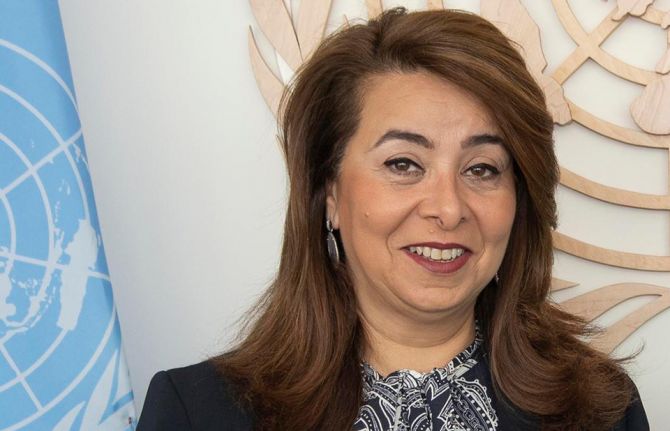
Press Statement
UNAIDS welcomes the appointment of Ghada Fathi Waly as Executive Director of the United Nations Office on Drugs and Crime
25 November 2019 25 November 2019GENEVA, 25 November 2019—UNAIDS warmly welcomes the appointment of Ghada Fathi Waly as the Executive Director of the United Nations Office on Drugs and Crime and Director-General of the United Nations Office at Vienna.
“I look forward to working closely with Ms Waly to help build safer societies for all where everyone has unimpeded access to the right to health, education and justice,” said Winnie Byanyima, UNAIDS Executive Director. “UNAIDS will also continue to partner the United Nations Office on Drugs and Crime in advancing innovative harm reduction programmes and policies for people who use drugs that aim to reduce the damaging effects of drug use on individuals and societies, while respecting the rights of people who use drugs and prisoners.”
HIV infections among people who inject drugs are rising. Outside of sub-Saharan Africa in 2018, people who inject drugs and their sexual partners accounted for around one fifth of all people newly infected with HIV. In two regions of the world—eastern Europe and central Asia and the Middle East and North Africa—people who inject drugs accounted for more than one third of new infections in 2018. Viral hepatitis and tuberculosis rates among people who use drugs are also high in many parts of the world. These preventable and treatable diseases, combined with overdose deaths, which are also preventable, are claiming hundreds of thousands of lives each year.
Comprehensive harm reduction services—including needle–syringe programmes, opioid substitution therapy, drug dependence treatment, overdose prevention and testing and treatment for HIV, tuberculosis and hepatitis B and C—reduce the incidence of blood-borne infections, overdose deaths and other harms.
UNAIDS
The Joint United Nations Programme on HIV/AIDS (UNAIDS) leads and inspires the world to achieve its shared vision of zero new HIV infections, zero discrimination and zero AIDS-related deaths. UNAIDS unites the efforts of 11 UN organizations—UNHCR, UNICEF, WFP, UNDP, UNFPA, UNODC, UN Women, ILO, UNESCO, WHO and the World Bank—and works closely with global and national partners towards ending the AIDS epidemic by 2030 as part of the Sustainable Development Goals. Learn more at unaids.org and connect with us on Facebook, Twitter, Instagram and YouTube.
Contact
UNAIDS GenevaMichael Hollingdale
tel. +41 79 500 2119
hollingdalem@unaids.org
UNAIDS Media
+41 22 791 4237
communications@unaids.org
Press centre
Download the printable version (PDF)

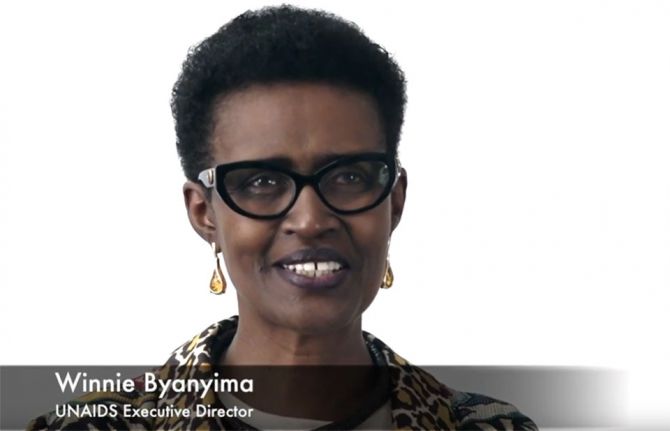
Press Statement
World AIDS Day 2019 message from UNAIDS Executive Director Winnie Byanyima
01 December 2019 01 December 20191 December 2019
I believe in communities.
Communities make change happen.
Communities are the best hope for ending AIDS because communities have fought against HIV right from the beginning!
As the epidemic raged through our countries, cities, villages, women held communities together and bore the higher burden of care for their families.
For far too long we have taken their volunteerism for granted.
In the face of adversity, communities of gay men, sex workers and people who use drugs have organized themselves to claim their right to health as equal citizens.
So, we know that communities have proved their worth. There is no debate there.
Without communities, 24 million people would not be on treatment today. Without communities led by women living with and affected by HIV, we would not be close to ending new HIV infections among children, raising orphans and caring for the sick.
Twenty-five years ago, a Burundi woman called Jeanne was the first person to disclose that she was living with HIV. Today, Jeanne is holding leaders accountable and fighting for the right to health care.
Pioneers like Jeanne have been joined by younger leaders, like 20-year-old Yana, who was born with HIV in Ukraine. Yana founded Teenergizer, a group bringing together young people across eastern Europe. In a world where power resides with old men, she wants her peers to have a voice and a choice.
Consider Fiacre. He lives in Central African Republic, displaced by conflict along with thousands of others. Fiacre cycles to a clinic, crossing barriers and checkpoints to collect antiretroviral medicines for him and members of a group he belongs to. Without this support, each person would have to make the dangerous journey on their own. Simply amazing.
As you can see, communities make the difference all over the world.
However, the way communities are being taken for granted has to change.
On World AIDS Day, UNAIDS salutes the achievements of activists and communities in the struggle against HIV. We remember and we honour all those whom we have lost along the way. Activists challenged the silence and brought life-saving services to their communities. But the countless contributions by women and many others can never replace the responsibility of governments.
Let me remind you, governments committed to at least 30% of HIV services being community-led.
They also agreed that 6% of all HIV funding go to community mobilization, promoting human rights and changing harmful laws that act as barriers to ending AIDS.
Let’s be clear, defending human rights and challenging discrimination, criminalization and stigma is risky work today.
So, we call on governments to open a space so that activists can do the work they do best.
With communities in the lead and governments living up to their promises, we will end AIDS.
Winnie Byanyima
Executive Director of UNAIDS
Under-Secretary-General of the United Nations
UNAIDS
The Joint United Nations Programme on HIV/AIDS (UNAIDS) leads and inspires the world to achieve its shared vision of zero new HIV infections, zero discrimination and zero AIDS-related deaths. UNAIDS unites the efforts of 11 UN organizations—UNHCR, UNICEF, WFP, UNDP, UNFPA, UNODC, UN Women, ILO, UNESCO, WHO and the World Bank—and works closely with global and national partners towards ending the AIDS epidemic by 2030 as part of the Sustainable Development Goals. Learn more at unaids.org and connect with us on Facebook, Twitter, Instagram and YouTube.

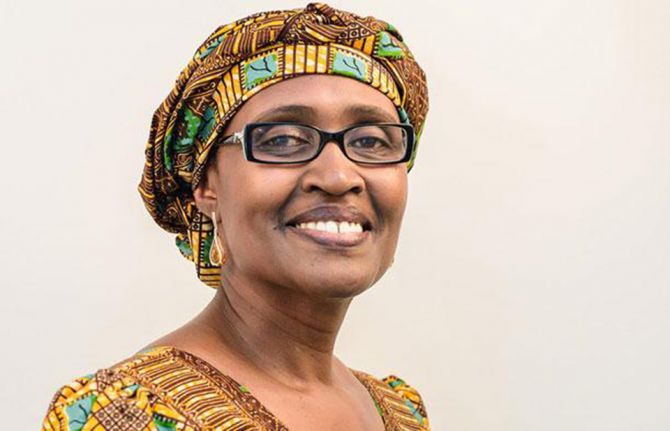
Press Statement
Winnie Byanyima joins UNAIDS as Executive Director
01 November 2019 01 November 2019GENEVA, 1 November 2019—UNAIDS is pleased to welcome Winnie Byanyima as its new Executive Director. Ms Byanyima brings to the role more than 30 years of experience in political leadership, diplomacy and humanitarian engagement.
“I am excited to be joining UNAIDS and am looking forward to working with all our partners to help drive the HIV response forward and to build fairer, healthier and happier societies, particularly for women and girls and for all groups of people shut out and left behind,” said Ms Byanyima.
Ms Byanyima brings a wealth of experience and commitment in harnessing the power of governments, multilateral agencies, the private sector and civil society to advance a people-centred development agenda. Ms Byanyima most recently held the post of Executive Director of Oxfam International. She also served for seven years as the Director of Gender and Development at the United Nations Development Programme.
Ms Byanyima holds an advanced degree in mechanical engineering (in energy conservation and the environment) from the Cranfield Institute of Technology and an undergraduate degree in aeronautical engineering from the University of Manchester.
The United Nations Secretary-General, António Guterres, appointed Ms Byanyima as the UNAIDS Executive Director and United Nations Under-Secretary-General in August following a comprehensive selection process that involved a search committee constituted by members of the UNAIDS Programme Coordinating Board. The UNAIDS Committee of Cosponsoring Organizations made the final recommendation on the appointment to the Secretary-General.
UNAIDS
The Joint United Nations Programme on HIV/AIDS (UNAIDS) leads and inspires the world to achieve its shared vision of zero new HIV infections, zero discrimination and zero AIDS-related deaths. UNAIDS unites the efforts of 11 UN organizations—UNHCR, UNICEF, WFP, UNDP, UNFPA, UNODC, UN Women, ILO, UNESCO, WHO and the World Bank—and works closely with global and national partners towards ending the AIDS epidemic by 2030 as part of the Sustainable Development Goals. Learn more at unaids.org and connect with us on Facebook, Twitter, Instagram and YouTube.
Press centre
Download the printable version (PDF)

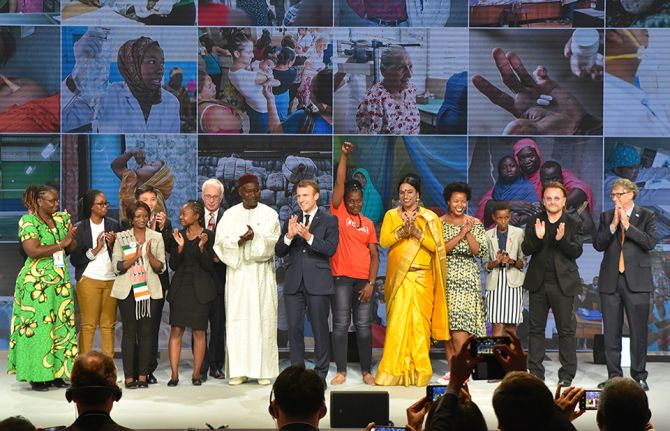
Press Statement
UNAIDS thanks all donors for pledging full funding for the Global Fund to Fight AIDS, Tuberculosis and Malaria
11 October 2019 11 October 2019The Global Fund to Fight AIDS, Tuberculosis and Malaria has raised US$ 14 billion for the three diseases for a three-year period (2020–2022)
GENEVA, 11 October 2019—UNAIDS is hugely encouraged by the firm commitment that donors have shown to the Global Fund to Fight AIDS, Tuberculosis and Malaria (Global Fund). At its Sixth Replenishment Conference, held in Lyon, France, on 9 and 10 October 2019, the Global Fund raised US$ 14.02 billion, the highest amount ever for the partnership, which is working to end the three diseases.
“I truly commend all countries and partners that have stepped up to the mark and committed to investing in the Global Fund to Fight AIDS, Tuberculosis and Malaria,” said Gunilla Carlsson, UNAIDS Executive Director, a.i. “These investments are a critical lifeline for millions of people around the world. Going forward, putting people at the centre will be critical for making the money work most effectively.”
UNAIDS congratulates the President of France, Emanuel Macron, for his personal engagement and his call on countries to increase their pledges to honour the proposed 15% increase above the last replenishment. Most donors matched or surpassed the 15% increase and many new donors attended and pledged for the first time.
UNAIDS will continue to work closely with the Global Fund providing strategic information, technical expertise and capacity-building to countries in sourcing and implementing Global Fund grants. UNAIDS advocates for a people-centred, human rights-based approach to ending AIDS and fully supports the active engagement of civil society and community-based organizations in reaching the most marginalized people and people being left behind. In 2018, there were 37.9 million people living with HIV, 15 million of whom are still in urgent need of access to life-saving antiretroviral therapy.
The pledges to the Global Fund will boost the response to HIV. UNAIDS will continue to advocate for increased investment to meet the full resource needs of the AIDS response to end AIDS by 2030 as part of the Sustainable Development Goals.
UNAIDS
The Joint United Nations Programme on HIV/AIDS (UNAIDS) leads and inspires the world to achieve its shared vision of zero new HIV infections, zero discrimination and zero AIDS-related deaths. UNAIDS unites the efforts of 11 UN organizations—UNHCR, UNICEF, WFP, UNDP, UNFPA, UNODC, UN Women, ILO, UNESCO, WHO and the World Bank—and works closely with global and national partners towards ending the AIDS epidemic by 2030 as part of the Sustainable Development Goals. Learn more at unaids.org and connect with us on Facebook, Twitter, Instagram and YouTube.
Contact
UNAIDS GenevaSophie Barton-Knott
tel. +41 22 791 1697
bartonknotts@unaids.org
UNAIDS Media
tel. +41 22 791 4237
communications@unaids.org
Press centre
Download the printable version (PDF)

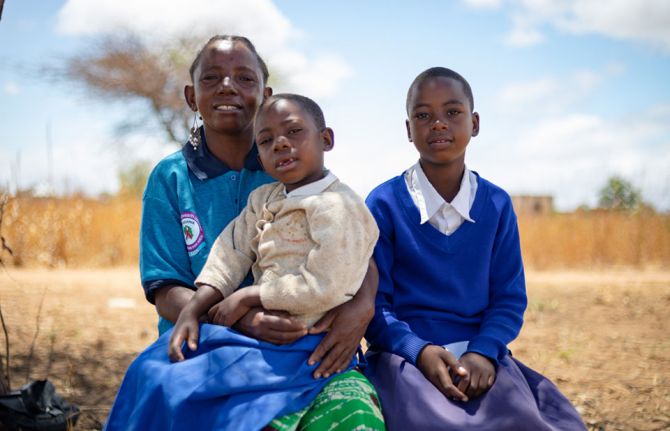
Press Statement
UNAIDS urges all countries to seize the opportunity to unleash the power and potential of this generation of girls
11 October 2019 11 October 2019GENEVA, 11 October 2019—There are approximately 1.1 billion girls in the world today. The largest generation of girls in human history. A formidable and unprecedented new generation of young women are demanding action and accountability on the many issues affecting them, from climate change to girls’ education, gender equality, ending early, forced and child marriage, menstrual health and eliminating gender-based violence.
On the International Day of the Girl Child, which this year runs under the theme “GirlForce: unscripted and unstoppable”, UNAIDS reaffirms the imperative to empower, invest in and engage adolescent girls and young women in shaping the AIDS response and the broader health and development agendas.
“Gender inequality, harmful gender norms and the epidemic of gender-based violence continue to block millions of girls from exercising their rights and reaching their full potential,” said Gunilla Carlsson, UNAIDS Executive Director, a.i. “Investing in the empowerment, rights and health of adolescent girls is one of the most important investments of our time.”
Multiple and intersecting sociocultural, economic and health issues heighten girls’ and young women’s vulnerability to HIV, with the most socially and economically marginalized girls and young women most affected by the epidemic. In 2018, every week around 6000 adolescent girls and young women (aged 15–24 years) were newly infected with HIV. Most of the new infections were in sub-Saharan Africa, where four out of five young people aged 15–19 years who became infected with HIV were female.
In addition, gender inequalities and gender-based violence are forcing thousands of girls into marriage and motherhood. Worldwide every year, 12 million girls under the age of 18 years are married and every day 20 000 girls under the age of 18 years give birth in developing countries. Early marriage often means that girls find it difficult to negotiate safer sex within the marriage, making them especially vulnerable to HIV and other sexually transmitted infections.
The bold targets of the 2016 United Nations Political Declaration on Ending AIDS and the UNAIDS 2016–2021 Strategy uphold the empowerment of women and girls, rights and gender equality as imperatives to ending AIDS and achieving the Sustainable Development Goals. UNAIDS urges all countries to seize the opportunity to unleash the power and potential of this generation of girls.
UNAIDS
The Joint United Nations Programme on HIV/AIDS (UNAIDS) leads and inspires the world to achieve its shared vision of zero new HIV infections, zero discrimination and zero AIDS-related deaths. UNAIDS unites the efforts of 11 UN organizations—UNHCR, UNICEF, WFP, UNDP, UNFPA, UNODC, UN Women, ILO, UNESCO, WHO and the World Bank—and works closely with global and national partners towards ending the AIDS epidemic by 2030 as part of the Sustainable Development Goals. Learn more at unaids.org and connect with us on Facebook, Twitter, Instagram and YouTube.
Press centre
Download the printable version (PDF)

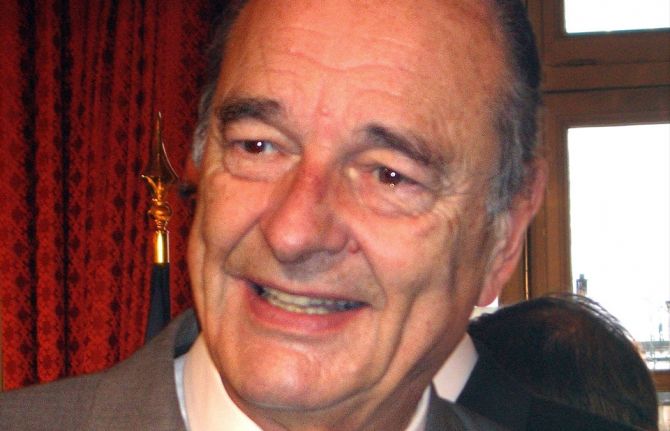
Press Statement
UNAIDS saddened by the death of Jacques Chirac
26 September 2019 26 September 2019GENEVA, 26 September 2019—UNAIDS is deeply saddened by the death of the former President of France, Jacques Chirac, an early champion of the AIDS response.
Speaking in 1997 at the opening ceremony of the International Conference on AIDS in Africa (ICASA) in Abidjan, Côte d’Ivoire, he denounced a response to HIV that was on two tracks, where HIV treatment was only available in the Global North but people living with HIV were disproportionally living in the Global South.
In 1997, he announced the creation of the International Therapeutic Solidarity Fund, which funded access to antiretroviral therapy, including in the least developed countries. The fund was a precursor to the establishment in 2002 of the Global Fund to Fight AIDS, Tuberculosis and Malaria. In 2006, Mr Chirac established the solidarity tax on aeroplane tickets, dubbed the Chirac Tax, which today is still an important source of financing for the AIDS response.
In 2008, after leaving the Presidency, he established the Fondation Chirac, which continues to work for access to health and quality medicines globally.
“It is thanks to leaders such as Jacques Chirac, who took responsibility and acted with principle, that today more than 23 million people globally have access to HIV treatment. I pay tribute to Mr Chirac’s leadership,” said Gunilla Carlsson, UNAIDS Executive Director, a.i.
UNAIDS
The Joint United Nations Programme on HIV/AIDS (UNAIDS) leads and inspires the world to achieve its shared vision of zero new HIV infections, zero discrimination and zero AIDS-related deaths. UNAIDS unites the efforts of 11 UN organizations—UNHCR, UNICEF, WFP, UNDP, UNFPA, UNODC, UN Women, ILO, UNESCO, WHO and the World Bank—and works closely with global and national partners towards ending the AIDS epidemic by 2030 as part of the Sustainable Development Goals. Learn more at unaids.org and connect with us on Facebook, Twitter, Instagram and YouTube.
Contact
UNAIDS GenevaAnne-Claire Guichard
tel. +41 22 791 2321
guicharda@unaids.org
UNAIDS Media
tel. +41 22 791 42 37
communications@unaids.org
Press centre
Download the printable version (PDF)
Region/country

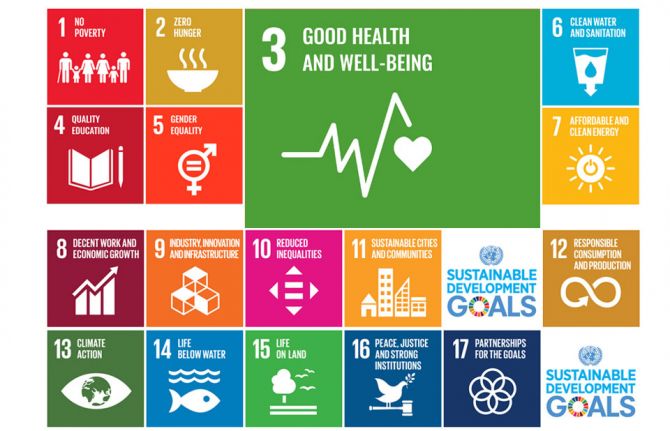
Press Statement
UNAIDS to work with United Nations Member States for a decade of action and delivery to achieve the Sustainable Development Goals
24 September 2019 24 September 2019United Nations Member States launch an ambitious and accelerated response to achieve the Sustainable Development Goals by 2030
NEW YORK/GENEVA, 24 September 2019—United Nations Member States have pledged to accelerate common efforts to achieve the Sustainable Development Goals (SDGs) by 2030, which include, under SDG 3, Good Health and Well-Being, ending AIDS. In a political declaration adopted by United Nations Member States at the summit on the Sustainable Development Goals, held on 24 and 25 September, United Nations Member States confirmed that the goals remain in reach if countries embrace transformation and accelerate implementation.
“What the Sustainable Development Goals give us is an extraordinary opportunity to create a better world for people to live in,” said Gunilla Carlsson, UNAIDS Executive Director, a.i. “As part of a better world we need to end AIDS, and ending AIDS requires achieving the Sustainable Development Goals—and to do this we need to work together. There are 17 Sustainable Development Goals, but one common vision—to join hands to build a better future.”
The 17 SDGs, adopted by all United Nations Member States in 2015, are the world's best plan to build a better world for people and the planet by 2030. They are a call to action by all countries to promote prosperity while protecting the environment. In adopting the new political declaration, Member States have reaffirmed their commitment to the core principle of the 2030 Agenda for Sustainable Development—to leave no one behind.
UNAIDS welcomes the commitment by Member States to leave no one behind and take to scale what the AIDS response has been working towards for nearly 40 years—a multisectoral, rights-based, people-centred approach that addresses entrenched social norms, social exclusion and legal barriers that undermine health and development outcomes.
The AIDS response is deeply interwoven with, and dependent upon, progress across sectors covered by the different SDGs and collective work on ending the AIDS epidemic by 2030 will accelerate progress across a range of SDG targets.
UNAIDS will continue to work with Member States to end AIDS by 2030 and will boost efforts to make meaningful contributions to advances in the wider development goals, in particular by accelerating work around the SDGs most relevant to the AIDS response: good health and well-being; gender equality; reduced inequalities; peace, justice and strong institutions; and partnerships for the goals. Achieving the 2030 Agenda for Sustainable Development will improve the lives of everyone, everywhere.
UNAIDS
The Joint United Nations Programme on HIV/AIDS (UNAIDS) leads and inspires the world to achieve its shared vision of zero new HIV infections, zero discrimination and zero AIDS-related deaths. UNAIDS unites the efforts of 11 UN organizations—UNHCR, UNICEF, WFP, UNDP, UNFPA, UNODC, UN Women, ILO, UNESCO, WHO and the World Bank—and works closely with global and national partners towards ending the AIDS epidemic by 2030 as part of the Sustainable Development Goals. Learn more at unaids.org and connect with us on Facebook, Twitter, Instagram and YouTube.

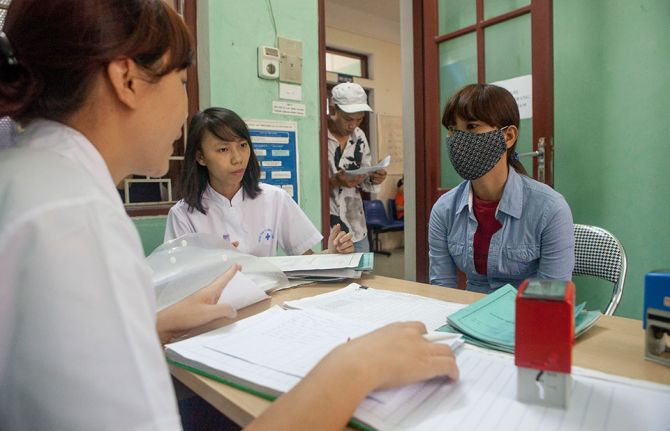
Press Statement
UNAIDS applauds the commitment of United Nations Member States to provide 1 billion more people with quality health services by 2023
23 September 2019 23 September 2019UNAIDS stresses the critical need to engage civil society and communities in every aspect of universal health coverage in order to leave no one behind
NEW YORK/GENEVA, 23 September 2019—UNAIDS welcomes the strong commitment made by United Nations Member States to achieve universal health coverage (UHC) by 2030. Member States recommitted to achieving UHC at the first ever United Nations General Assembly High-Level Meeting on Universal Health Coverage, which took place in New York, United States of America, on 23 September. During the meeting, United Nations Member States adopted a political declaration on UHC in which they reaffirmed the right of people to enjoy the highest attainable standard of physical and mental health as an integral part of the Sustainable Development Goals.
In the worrying context of shrinking civic space, UNAIDS is encouraged by the call made by Member States in the political declaration to engage civil society in health system governance, in health policies and in the UHC review process. Engaging civil society and communities worldwide will be critical to ensuring the overall success of UHC.
“We strongly urge governments to invest in the leadership and capacities of diverse communities, especially those that are underrepresented,” said Gunilla Carlsson, UNAIDS Executive Director, a.i. “To reach the furthest behind, universal health coverage needs to engage communities and prioritize rights-based, transformative approaches. This will ensure equity in access to health services, deliver people-centred results and eliminate health disparities.”
UNAIDS is committed to enabling communities, particularly vulnerable communities, to participate in health planning, implementation and monitoring. As part of that work, UNAIDS has worked with partners on the Global Action Plan for Healthy Lives and Well-Being for All, to ensure the full engagement of communities and civil society in UHC. The global action plan is to be launched in New York on 24 September.
UNAIDS also welcomes the commitment by Member States to leave no one behind, including children, youth, people with disabilities, people living with HIV, older people, indigenous people, refugees, internally displaced people and migrants. UNAIDS also urges Member States to reach groups particularly affected by HIV, including sex workers, gay men and other men who have sex with men, transgender people, people who inject drugs, prisoners and people in conflict settings, in order to ensure that even the most marginalized are reached with health services.
The political declaration on UHC recognizes that current action to achieve UHC is inadequate, with at least half the world’s population lacking access to essential health services. Currently, more than 800 million people have to spend at least 10% of their household income on health care and an estimated 100 million people are driven into poverty each year through out-of-pocket health-related expenses.
UNAIDS welcomes the commitment by Member States in the political declaration to stop the rise and reverse the trend of catastrophic out-of-pocket health expenditure and applauds the commitment to progressively cover 1 billion additional people with quality health services by 2023 with a view to covering all people by 2030.
UNAIDS supports the commitment of Member States to ensure sufficient domestic public spending on health, expand quality essential health services, strengthen health systems and provide adequate, predictable, evidence-informed and sustainable finances to support national efforts in achieving UHC. UNAIDS will continue to advocate for increased funding for health and for essential HIV prevention and treatment services to be included in health service delivery packages.
In addition to the commitment of Member States to achieving UHC, they also reaffirmed the strong commitments made in the Political Declaration on Ending AIDS, which was adopted by Member States in June 2016. In the Political Declaration on Ending AIDS, Member States recognize that progress in protecting and promoting the human rights of people living with, at risk of and affected by HIV has been far from adequate and pledged to review and reform legislation that may create barriers or reinforce stigma and discrimination.
“Legal barriers must be removed in order to ensure that the right to health is respected,” said Ms Carlsson. “The AIDS response has been grounded in a commitment to human rights, gender equality and non-discrimination and the needs of key populations must be met.”
Progress in the AIDS response and the achievement of UHC are interconnected and mutually reinforcing. Both will contribute to achieving the health-related targets of the Sustainable Development Goals, including ending the AIDS epidemic by 2030.
UNAIDS
The Joint United Nations Programme on HIV/AIDS (UNAIDS) leads and inspires the world to achieve its shared vision of zero new HIV infections, zero discrimination and zero AIDS-related deaths. UNAIDS unites the efforts of 11 UN organizations—UNHCR, UNICEF, WFP, UNDP, UNFPA, UNODC, UN Women, ILO, UNESCO, WHO and the World Bank—and works closely with global and national partners towards ending the AIDS epidemic by 2030 as part of the Sustainable Development Goals. Learn more at unaids.org and connect with us on Facebook, Twitter, Instagram and YouTube.
